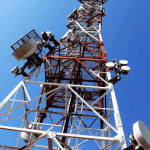
Ghana’s Bold Move to Challenge MTN Through Strategic Telecom Merger
Ghana’s telecommunications landscape stands on the brink of transformation as government officials orchestrate an ambitious merger between two underperforming operators. This strategic consolidation aims to reshape market dynamics and provide genuine competition to the dominant player that currently controls nearly four-fifths of the market.
Understanding the Current Market Landscape
MTN Ghana’s overwhelming market presence has created an environment where competition struggles to flourish. With a staggering 78.88% market share recorded in April 2025, the telecom giant maintains an almost monopolistic position that has proven difficult for rivals to challenge effectively.
The government’s intervention comes at a critical juncture when smaller operators face mounting financial pressures. AirtelTigo’s deteriorating performance, marked by losses exceeding $10 million within eight months, exemplifies the challenges facing secondary market players.
The Merger Blueprint and Financial Framework
The proposed union between Telecel and AirtelTigo represents more than a simple corporate restructuring. This strategic alliance would create a combined subscriber base of approximately 3.2 million users from AirtelTigo, adding to Telecel’s existing customer portfolio following its recent Vodafone Ghana acquisition.
Communications Minister Samuel Nartey George emphasizes the merger’s necessity for market stabilization. The government has committed substantial resources to ensure success, proposing a comprehensive $600 million investment package spread across four years. This funding strategy encompasses multiple revenue streams, including spectrum auction proceeds, policy adjustments, and private sector partnerships.
Learning from Past Consolidation Attempts
Ghana’s telecom sector has witnessed previous merger attempts with mixed results. The 2017 Airtel-Tigo combination initially showed promise but ultimately failed to sustain competitive momentum against MTN’s market leadership. AirtelTigo’s market share declined dramatically from 25.82% in 2018 to merely 7.89% by late 2024, highlighting the challenges inherent in telecom consolidation.
This historical context provides valuable lessons for the current merger strategy. The government recognizes that financial support alone cannot guarantee success without proper execution and market positioning.
Technical Implementation and Timeline
The merger process involves comprehensive technical migration and organizational restructuring. Officials have established an ambitious completion target for the end of 2025, requiring careful coordination of network integration and staff realignment.
AirtelTigo’s current B3 credit rating signals significant default risk, making the merger’s success crucial for preserving competition in Ghana’s telecom market. The integration must address both technical infrastructure compatibility and financial stability concerns.
MTN’s Competitive Response Strategy
While competitors struggle with consolidation efforts, MTN continues strengthening its market position through substantial infrastructure investments. The company has announced a $1 billion commitment to upgrade services and expand network capabilities across Ghana.
MTN’s financial performance reinforces its dominant position, with revenue growth of 39.9% during the first half of 2025. This strong financial foundation enables continued investment in network improvements and service enhancements that maintain competitive advantages.
Ghana’s telecom merger strategy represents a calculated attempt to inject meaningful competition into a market dominated by a single operator. Success depends on effective execution, adequate financial support, and the ability to learn from previous consolidation failures. The combined Telecel-AirtelTigo entity must overcome significant challenges, including technical integration, financial stability, and market positioning against an entrenched competitor.
The outcome will determine whether Ghana can achieve genuine telecom competition or if market concentration will persist despite government intervention efforts.
READ ALSO: Lenovo Launches Legion Go 2: Enhanced Gaming Experience with OLED Technology









Leave a Comment
You must be logged in to post a comment